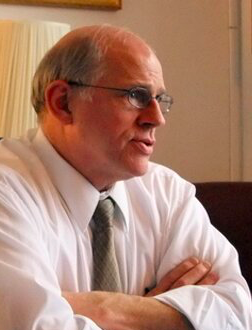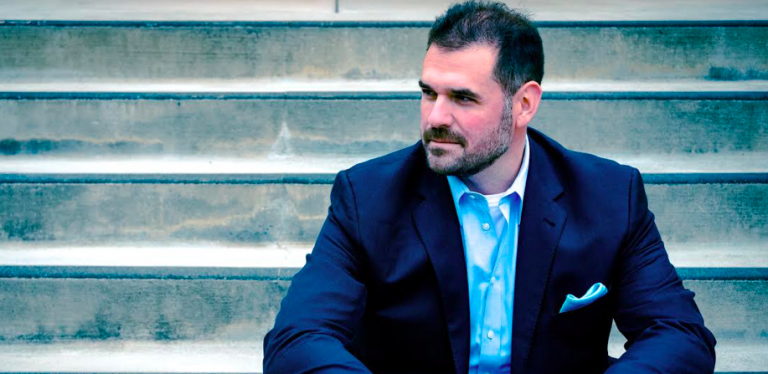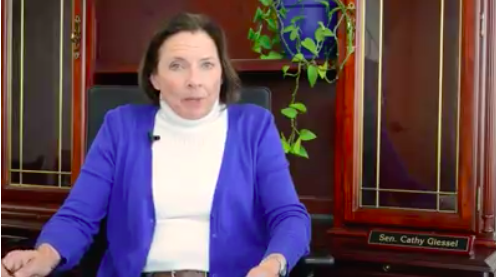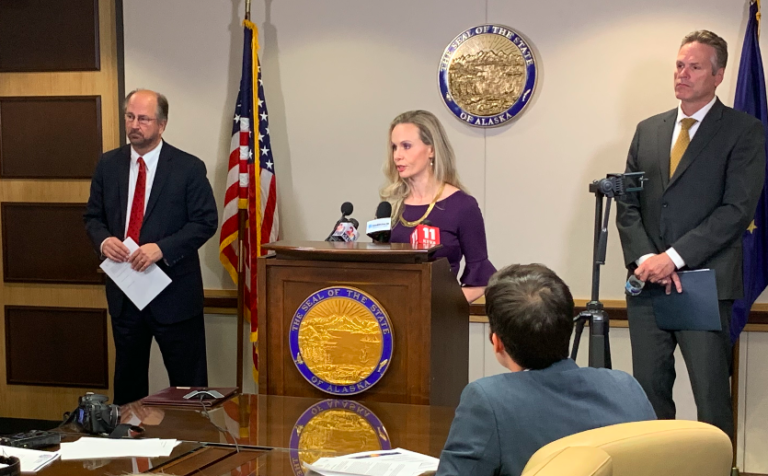By PETER J. CALTAGIRONE, ESQ.
Alisha Hilde recently penned an article for this publication that asks what it means, these days, to be a Republican.
To quote Ms. Hilde, in pertinent part: “[b]eing a Republican means your moral compass is not moved by political winds, … a responsibility to promote robust and respectful debate at the national, state, and local level … [not] jumping on political bandwagons[, … and] thinking deeply about issues and how our actions fit into the larger narrative of American history.”
She also reminded us of provisions in our platform: “smaller government, local decision-making, and responsible spending because we’re spending the public’s money.”
This got me thinking, hopefully other readers did, too. Specifically, I started calibrating our party’s shift under President Trump’s leadership. I realize there is some risk in publishing my thoughts, but from private conversations with fellow conservatives, I’m not alone in my opinions. Therefore, I decided to publish the following and touch upon some of Ms. Hilde’s important points more bluntly.
Name calling is a popular political trend these days, so let’s start there. A common acronym bandied about our party recently is “RINO:” Republican in Name Only. The same Republican voices most vociferously denouncing these so-called RINOs tend to be the same voices enthusiastically supporting Trump. This irony is not lost on me.
This is ironic because our party leaders are in denial about the incongruous nature, when juxtaposed with what our party supposedly stands for, of the policies and actions of our President. This starts with fiscal responsibility, a heavily prioritized tenet of our platform.
For example, despite Trump’s campaign promises that he would fix our national debt, our President is instead passing budgets with ever-growing deficits; $1 trillion in 2019 and a cumulative national debt about to eclipse $23 trillion, the highest in our nation’s history. Interestingly, Trump is on pace to at least match, but likely exceed, Obama’s contributions to this debt load.
Our debt is approaching 100% of GDP, a level not seen since World War II. At least then we had good reason to be so heavily leveraged. The nation was “all hands on deck” to defend itself against powerful enemies on two fronts. The United States lacks the financial wherewithal to defeat such an existential threat today. And, the circumstances that enabled this nation’s recovery from that debt load after the war, namely a combination of rapid and substantial GDP growth matched with government spending that was a small fraction of current levels, do not exist today.
I’m 37 years old. If we don’t act now, I will live to see, before I retire, the devastating consequences continued indebtedness will reap. The Left peers into the crystal ball and foresees climate change destroying our country and planet. But climate change science remains a largely theoretical exercise leaving us to merely postulate what role, if any, mankind can effectively have in its mitigation. On the contrary, we are informed from examples throughout world history exactly what happens to financial systems under such heavily leveraged circumstances.
Let’s use the weight of our party to lead by example and better educate younger generations about this more imminent threat. Today’s Democrats only offer solutions based on socialism. The Libertarians, while vocal about this issue, lack numbers and access. It’s therefore our burden as Republicans to lead the middle toward a fiscally conservative solution. My generation’s hope for a prosperous future depends on it.
While the “Greatest Generation” was defined by how it fought and defended this country against Germany and Japan, my generation and the generation that follows will come to be defined by how we handled the country’s indebtedness and impending economic collapse.
If our president truly cared about this elephant in the room, why not take a hardline stand? For example, our president has demonstrated he is willing to shut down the federal government. Why not take that step over massively important issues like fixing our broken social security system or the myriad taxpayer obligations tied to the rocketing costs of health care? These are two easy examples of massive, unfunded present and future liabilities, all of which are contributing to our indebtedness. There are many others.
Instead, the president shut down the government because the Democrats would not let him spend more billions to build a wall. Let that sink in. Having grown up in San Diego County, which sits on the front lines of illegal immigration, I can tell you from experience a wall, while symbolic, is on balance ineffective at fixing the underlying causes and problems associated with illegal immigration.
As to Ms. Hilde’s points about respectful debate and how our actions fit into the larger narrative of American history, I ask the following: why do so many of my fellow Republicans ignore the degradation Trump has brought to our brand? We used to be the party that led by example and kept America from straying too far from its core. The list of our party’s famous presidents includes Lincoln, Coolidge, Eisenhower, and Reagan. These examples, though flawed like any other individual, were nonetheless defined by their great minds and exemplary leadership.
By contrast, today’s party leadership is all-in on a fiscal liberal who YELLS IN CAPS-LOCK on Twitter, interferes with free markets through his trade wars, and refers to his political adversaries (and sometimes his allies) with pejorative names instead of engaging them with robust and respectful debates on policy.
Though I voted for Gary Johnson in 2016, I accepted the election results and did my best to remain objective the last two years. I give Trump credit for the handful of positive changes his administration has thus far brought to Alaska and the United States. However, pecuniary gains do not excuse monumental setbacks.
As John Adams famously admonished: “facts are stubborn things.” The sum of the facts over the past two years of this presidency lead, under any objective metric, to one inescapable conclusion: Trump is a “RINO.” Perhaps you’re ok with that – that’s your right. Unfortunately for the rest of us, Alaska’s party leadership recently voted to cancel our presidential primary, denying us the opportunity to consider a new Republican president that better reflects our principles.
Notwithstanding the risk, I encourage fellow Republicans to publicly add your voice to this dialogue. Since 1773 when the Sons of Liberty defiantly submerged some tea in Boston Harbor, our responsibility as Americans is to question authority. Nothing is more patriotic. If you consider yourself a patriot, such is the responsibility that comes with that privilege, regardless of the cost.
Peter J. Caltagirone is a lifelong Republican, District 28 (South Anchorage) precinct captain, and oil and gas attorney licensed in five states.








